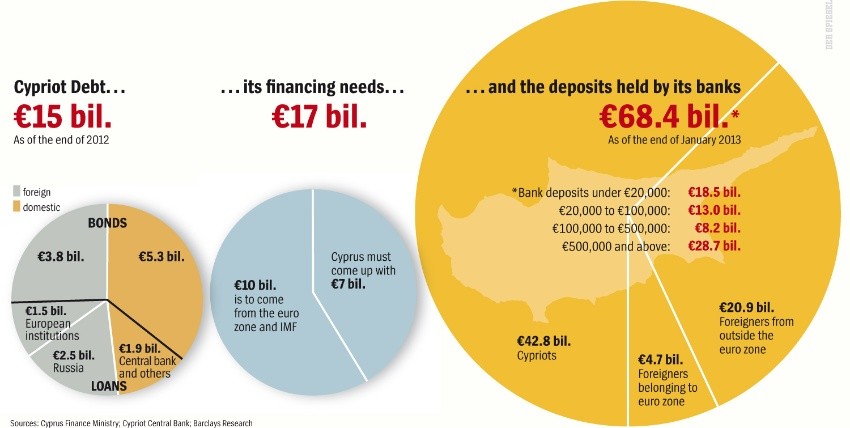Currency Crisis Hits Developing Countries in Asia and Elsewhere SPIEGEL ONLINE
Post on: 10 Август, 2015 No Comment

Capital Flight: Currencies Plunge Rapidly in Asian Economies
As the credit glut in the US nears an end, the currencies of developing countries like India, Thailand and Indonesia are plummeting. Now there are fears that a redux of the 1997 market crash is on the horizon.
Indian customs officials are out in full force these days in their attempt to stop the illegal import of gold. At the airport in Kochi, in the south of the country, officials recently caught a man who had hidden two kilograms (5.5 pounds) of precious metals in his socks — he was given away by his odd gait. Other customs officers on the border with Nepal stopped a truck with 35 kilograms of gold hidden in its bumper.
Their battle is a frustrating one. For every kilogram of gold seized, it is estimated that another makes it into the country unnoticed. Gangs pay smugglers up to 50,000 Indian rupees (around €575 or $770) to bring them gold from, for example, Dubai, a favorite source. Indians are obsessed with gold right now — and not only because of the approaching wedding season. As the rupee has dropped dramatically in value, many Indians have turned to tangible assets. The government has increased its tax on gold imports as a way of shoring up the country’s currency, but that has only caused wary investors to flee further.
The government comes up with new ideas for slowing the rupee’s fall almost every day: by imposing customs duties on flat-screen TVs — which Indians could previously bring into the country unobstructed — for example, or by making it more difficult for company managers to export capital and invest it abroad.
None of this has helped. Since May, the rupee has lost 17 percent of its value against the dollar.
There are two primary reasons for this crash. The first is that investors have lost faith in India’s economic miracle and in Indian politicians. Growth has dropped by nearly half, the country’s trade balance continues to slip further into the red, stock prices are practically in free-fall and inflation is deepening the divide between rich and poor.
The second reason, though, is something over which authorities in New Delhi have little control: the coming end of the credit glut in the United States.
No More American Hot Money?
Much of the money the US Federal Reserve Bank released onto the market as a way of stimulating the economy eventually made its way to India or other emerging markets, where it drove up property values and stock prices.
In May, Federal Reserve chair Ben Bernanke hinted at a change of course. Since then, investors have speculated about a coming end to quantitative easing — a strategic program the Americans adopted in an attempt to lower interest rates and push up prices in the US — and increasingly to pull their money out of emerging markets. Currency value is now dropping in many countries that previously profited from foreign capital, like Brazil, Russia and South Africa, but hardly anywhere is the phenomenon as extreme as in India.
Until recently, the so-called BRICS countries — Brazil, Russia, India, China and South Africa — were seen as winners in the 2008 global financial crisis. Economists even predicted that these ascending countries would be able to decouple themselves economically from crisis-ridden Europe and the US. Instead, those countries are now quaking at the prospect of an end to the flow of so-called hot money from the US.
It is true that the leading BRICS country, China, is not directly affected by the current currency crisis, since the yuan is not freely convertible — meaning, it cannot be immediately converted into major reserve currencies. But the country’s Communist rulers are struggling with their own banking crisis and an urgently needed reorientation of Chinese industry toward more domestic consumption.
Trapped Between Two Economic Giants
As China’s economy falters, its imports of raw materials from other newly industrialized countries declines as well, which means China’s southeast Asian neighbors in particular are suffering on two fronts. Indonesia, Malaysia and Thailand are now not only exporting less to China, they are also forced to stand by and watch as investors flee en masse from the Indonesian rupiah, the Malaysian ringgit and the Thai baht.
Prasarn Trairatvorakul, head of Thailand’s central bank, has tried in vain to calm the markets. The general economic situation is still okay, he declared, adding that the baht was moving in line with economic fundamentals.
Indonesia’s central bank governor, Agus Martowardojo, has likewise played down the seriousness of the situation, saying, the worst times of capital outflow in June and July are already over. Pressures against the rupiah are unlikely to continue. However, financial experts have doubts about the Indonesian government’s ability to combat the crisis effectively. We do not think there is a magic bullet that can turn things around, stated a team of Barclays analysts headed by Prakriti Sofat.
A Repeat of the 1997 Crash?
All this brings up some unpleasant memories: It is precisely these so-called tiger economies that, following a period of artificially inflated growth, triggered the 1997 Asian financial crisis. That debacle began in Thailand, where the newly rich middle class constructed skyscrapers and mansions and purchased luxury cars, all on credit. When this bubble became apparent, hedge funds in London and New York began speculating on a baht crash.

Thailand had pegged its currency to the US dollar. To maintain the exchange rate and fend off speculators’ attacks, the country introduced nearly its entire foreign currency reserves onto the market within a very short space of time. Ultimately, the country’s central bank had to capitulate to the hedge funds. Thailand abandoned its peg to the dollar and the baht tumbled in value. The country’s debts also increased because most loans had been in dollars. Thailand ended up practically broke.
Next, trouble hit a number of banks in Malaysia and Indonesia, where enraged mobs looted shops owned by Chinese businesspeople; Suharto’s dictatorship collapsed soon after. South Korea, too, only narrowly escaped national bankruptcy thanks to a $58 billion International Monetary Fund loan.
This time around, newly industrialized countries are better armed against capital flight. Having learned a lesson from the Asian financial crisis, they have increased their foreign currency reserves and partially reformed their banking sectors. Even more importantly, their currencies are no longer pegged to the dollar.
Flimsy BRICS
But the capital flight currently taking place also illustrates how far the BRICS countries and the Asian tigers still are from overtaking Western industrialized countries — and to what degree these countries’ accomplishments are now in jeopardy. According to analysts at Morgan Stanley, the central banks of developing countries, with the exception of China, lost a total of $81 billion between just May and July through the selling of dollars to protect their currencies.
Indonesia’s foreign currency reserves have shrunk by 18 percent since the beginning of the year. Until recently, the world’s largest Muslim country was a favorite for foreign investors. Thanks to its boom in raw materials, the country’s manufacturing was still growing by over 10 percent in April, faster than almost any other country in the world. Companies from Europe, the US and Japan have built car and electronics factories in the country because, in addition to other factors, they also have faith in Indonesia’s impressively well-functioning democracy.
At the same time, nearly half of Indonesia’s almost 240 million inhabitants live on less than $2 a day. The rupiah’s drop has forced the country’s poor to cut back on food even more, while their newly rich neighbors search feverishly for a way to protect their wealth. As a precaution, the central bank in Jakarta has forbidden the withdrawal of dollars from ATMs.
These developing countries are in a tight spot. To curtail rapid capital flight, they would need to raise interest rates considerably, but doing so would cause the country’s economy to stall. Indian economist Jayati Ghosh warns that this would lead to social unrest. The governments of India and Indonesia are particularly leery of causing that sort of nightmare scenario: both of these large democracies have elections in the coming year.
Translated from the German by Ella Ornstein














